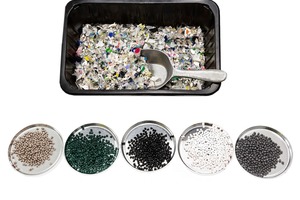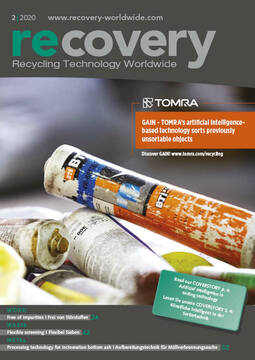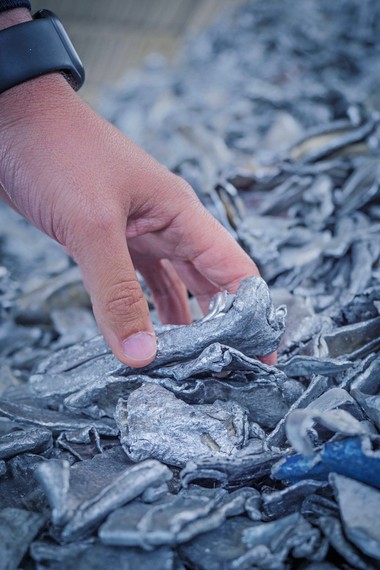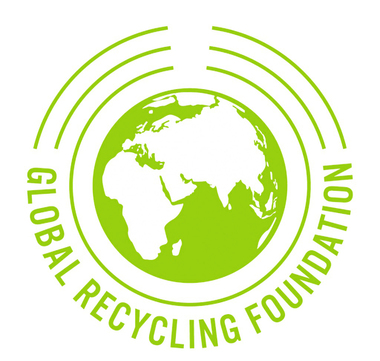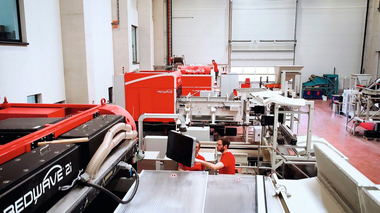Interseroh assesses recycling processes in LCA study
New recycling processes enable the high-quality treatment of plastic waste into regranulates, which saves resources and reduces greenhouse gas emissions. And this is exactly what Recycled-Resource – the advanced processes developed by the INTERSEROH Dienstleistungs GmbH – enables and what has now been verified by a life cycle assessment carried out by Fraunhofer UMSICHT on behalf of Interseroh.
Life cycle assessment study conducted by Fraunhofer UMSICHT
The life cycle assessment evaluated different processes for the production of the regranulate Recythen and the recompound Procyclen. Both of these are based on plastic waste from the domestic and bag collection in Germany from the yellow bin. The system boundary for the environmental assessment starts with the collection and sorting of lightweight packaging and ends with the provision of the recycled polymer. In addition to the effect on global warming, the primary energy demand for the production of regranulates was evaluated.
The results show that, compared to the use of crude oil, the use of Recythen and Procyclen reduces green house gases, consumption of primary energy per ton of regranulate by 21 000 kWh. The difference approximately more or less to the energy demand of 14 000 wash loads. Even the production of the recycled raw material Procyclen, which is relatively complex due to customer-specific adaptations, saves 54 % of the climate-damaging greenhouse gas emissions. The data are based on values from 2018.
Promotion of recirculation
„The numbers confirm that we are on the right track,“ says Dr. Manica Ulcnik-Krump, Head of the Business Unit Recycled Resource at INTERSEROH Dienstleistungs GmbH. „A technically further improved, effective recycling of plastics eases the impact on the climate – while increasing the benefits for our customers from industry.“
Recompounds, which are produced by using Interseroh‘s own multiple award-winning Recycled-Resource process, have already substituted virgin material in many areas. With the innovative extrusion system COREMA®, for which Interseroh and the manufacturer EREMA 2019 have been awarded with the Plastics Recycling Award Europe, it is now for the first time possible to produce tailor-made recycling compounds in just one process step instead of the two required previously. „This, again, noticeably reduces energy and resource consumption,“ says Dr.-Ing. Markus Hiebel, Head of Sustainability and Resource Management at Fraunhofer UMSICHT. In addition, additives, modifiers and inorganic fillers can be directly incorporated into the manufacturing process. The quality control of material rheology and color stability takes place digitally and in real time. Interseroh can thus produce individual recompounds for particularly high-quality applications according to customer requirements – and protect the climate at the same time.
The study was carried out on behalf of the INTERSEROH Dienstleistungs GmbH. The publication of studies created on behalf of the customer is the responsibility of the clients.

